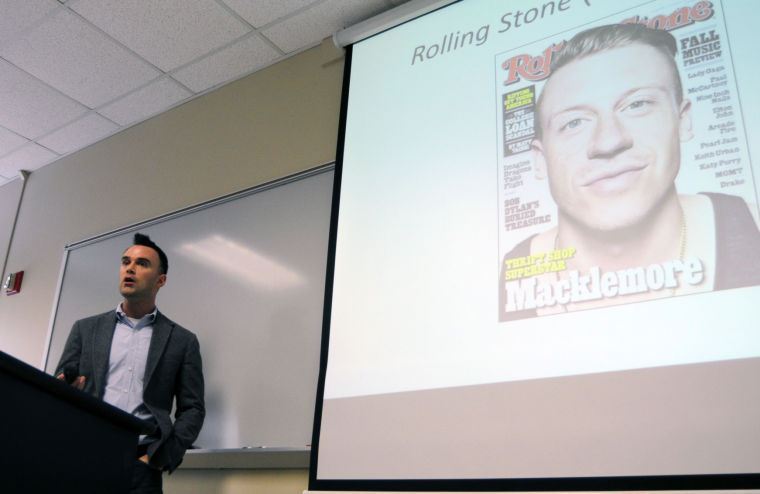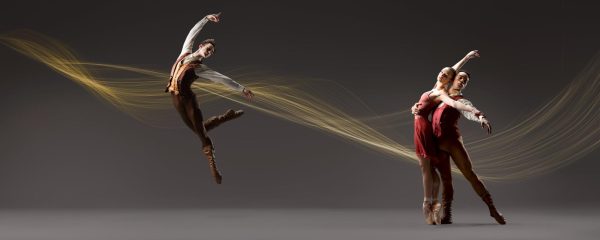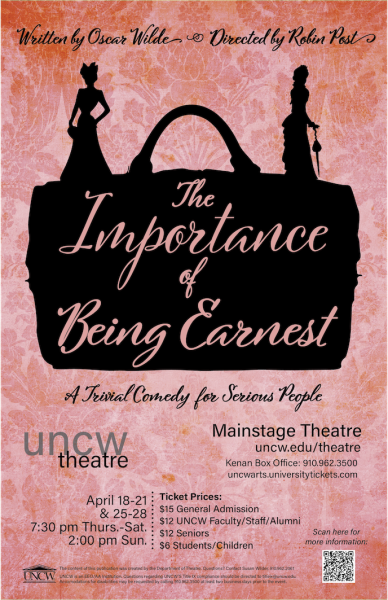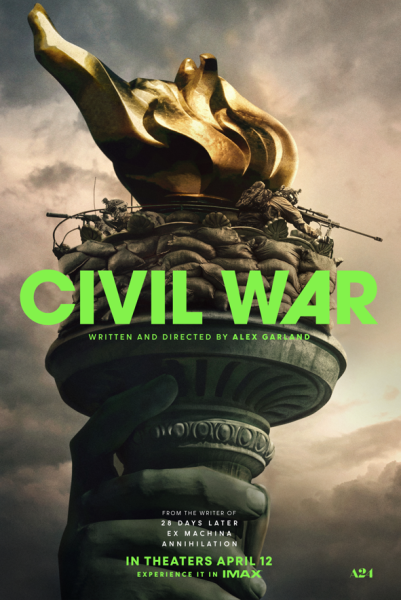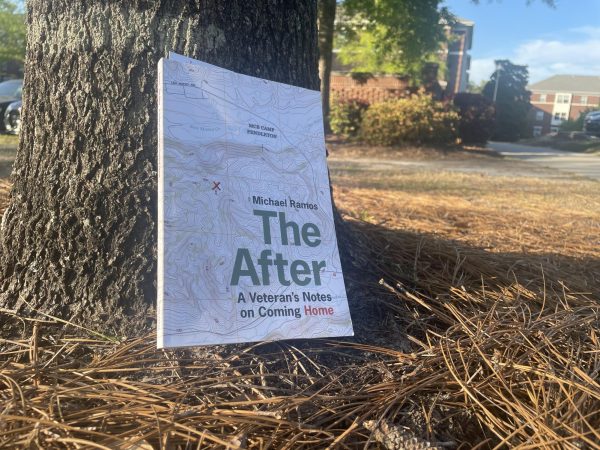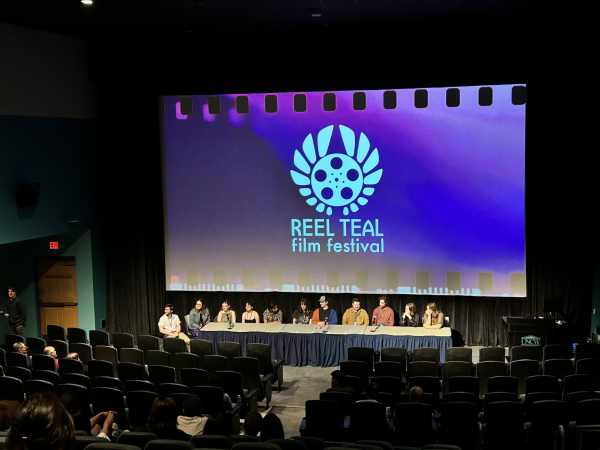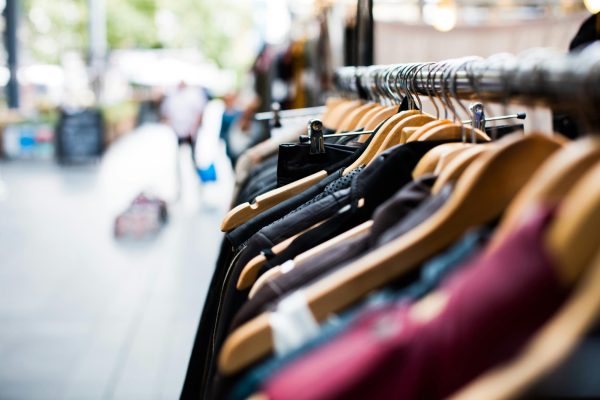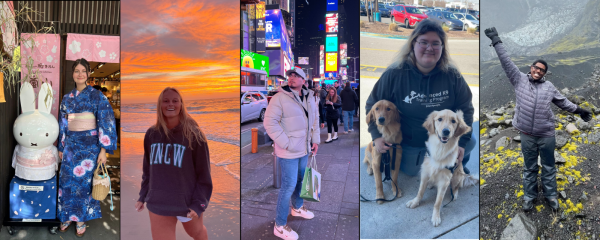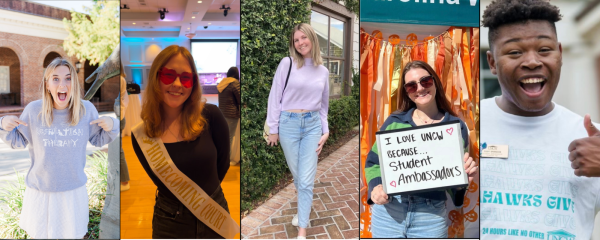Macklemore affects gay community
Dr. Chadwick Roberts speaks to a classroom full of students and faculty about “Poppin’ Tags: Whiteness, Authenticity and Advocacy in Macklemore’s Thrift Shop and Same Love.” The talk was presented by LGBQTIA’s “Out To Lunch” series.
October 3, 2013
Top-selling rap artist Macklemore’s hit song “Same Love” uses hip-hop to promote marriage equality. But, as a straight, white, middle-class man, does Macklemore have the right to make money off the gay rights movement or even call himself a hip-hop artist? These were some of the questions addressed in professor Chadwick Robert’s Out to Lunch Lecture “Poppin’ Tags: Whiteness, Authenticity, Appropriation and Advocacy in Macklemore’s Thrift Shop and Same Love,” sponsored by the LGBTQIA Resource Office.
As a UNC Wilmington assistant communications studies professor and a member of the LGBT community, Roberts wanted to know more about Macklemore’s sudden popularity.
“I’ve been interested in really popular iconographic stuff,” Roberts said. “I’ve encountered other videos about marriage equality and bullying, but they just haven’t resonated the way that this one has.”
And so, for that reason, Robert said it was worth standing back and asking what set Macklemore apart: What is it about the way that he’s presented gay marriage that connects to people?
Roberts discussed how, as an artist, Macklemore has been criticized for cultural appropriation. Macklemore is part of the white middle class but portrays himself in the “Thrift Shop” music video as part of the low income, “ghetto fabulous” hip-hop community. He is also a straight man profiting off of the gay rights movement by selling his song “Same Love.”
Macklemore is aware of his privileges, at least to a degree, Roberts pointed out, as evidenced by his song “White Privilege.” In the music video and during his live performances, Macklemore removes himself from the center of attention as a way to acknowledge that he is telling someone else’s story.
Roberts explained that Macklemore claimed he wrote “Same Love” as a reaction to the homophobia prevalent in rap music and the American culture in general. The lecture discussion and media sources Roberts mentioned reflect America’s indecision regarding Macklemore’s music.
Roberts noted a New York Times article that declared Macklemore had killed hip-hop, comparing him musically to the “Gangnam Style” viral video. However, Roberts said that Rolling Stone and XXL magazine placed Macklemore on their covers this year. MTV also began promoting Mackelmore and gay rights after “Same Love” climbed to the top of music charts.
During the lecture discussion, which bounced everywhere from the appropriation of flappers in the 1920s to homophobic YouTube comments, students were just as split as the media. Some believed that Macklemore was being a good ally, and that any positive discussion helps the LGBT cause. Others, like UNCW senior LeTriece Calhoun, wanted a member of the LGBT community at the forefront of the marriage equality fight rather than another straight, white man.
“Why is [Macklemore] speaking up over us for something like this?” Calhoun asked.
Roberts later argued that video is socially important, especially after a North Carolina middle school teacher was recently suspended for three days for showing the “Same Love” video to her class.
LeTriece Calhoun commented on this as well.
“There was a letter in The Advocate, the gay and lesbian newspaper, a couple days ago–an op-ed piece from a guy saying, ‘I wish that teacher had been my teacher’ and that it could’ve gone to a discussion of intolerance and bullying and things that really impact people’s lives and their emotional well-being and that really connected with me,” Calhoun said.
Roberts admitted in the beginning of the lecture that he would be asking more questions than could possibly be answered in one presentation. He said that we won’t know Macklemore’s true impact until more time passes.
“It hasn’t played out yet. We don’t truly know the impact of it, in the same way that ‘Will and Grace’ was. We can say this is a really popular show. It’s a first, but it took some distance for us to really see the impact of it. You can inlay that over holes of people’s perceptions of marriage equality, and there’s a big shift,” Roberts said. “If you ask them to elaborate on why they changed, they say ‘Well, “Will and Grace,’’’ particularly older people. So, pop culture does have a place in that.”
UNCW graduate student Connie Chavis said that, under the time restraints, she thought Roberts did a good job, but she wished he could have gone into more detail.
“You have artists like Common and Mos Def who do talk about, you know, political awareness, but they don’t get that kind of mainstream attention that Macklemore does. So, the question goes: why does this white guy get this attention?” Chavis said.
It is important to remember that media is powerful, Roberts said, and that critiquing pop culture is not the same as wishing it would go away.
“I’m asking students to take it seriously. Be critical consumers of popular culture, because it’s more than entertainment, and if we invest so much time and energy into it, then we should be thoughtful,” Roberts said.












